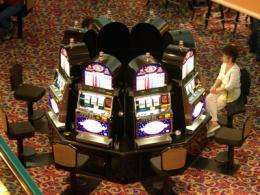Gaming claims don’t add up

The level of charitable and community contributions provided by poker machine operators is ‘miniscule’ in comparison to the amount of money lost by poker machine users within local communities, a new study has shown.
Led by Dr. Charles Livingstone of the School of Public Health and Preventive Medicine at Monash University, researchers looked into poker machine expenditure and community benefit claims by analysing data for four jurisdictions (New South Wales, Victoria, Queensland and the Australian Capital Territory), in relation to 41 selected federal electorates from 2010 to 2011.
The findings contradict the justification for current poker machine regulation, that poker machine venues provide significant levels of support to community activities.
It also reveals that the electorates where gamblers lost the most money on pokies were all Labor seats.
Dr. Livingstone said the claims of charitable and community contributions by clubs merely deflected attention from the harm caused by poker machines.
''It is difficult to avoid the conclusion that poker machine community benefit claims are principally intended as a device to legitimate poker machine operations,” Dr. Livingstone said.
''There is no doubt that poker machines cause considerable harm. Claims of community benefits are arguably a smokescreen to enlist the support of those who benefit from them - local sporting clubs and charities.
“Poker machines provide an extremely inefficient and high-cost method of funding community sporting and charitable activities.”
The research found that during the period of 2010-11, in New South Wales, pokie users lost almost $5 billion, amounting to $1003 per adult. New South Wales clubs donated $63.5 million to community organisations and charities, which amounts to 1.3 per cent of poker machine losses.
In Victoria, gamblers lost $2.6 billion, amounting to $701 per adult. The clubs donated $62.8 million to community and charitable groups or 2.4 per cent of losses.
The research, commissioned by UnitingCare Australia, was undertaken by Dr Charles Livingstone, Chebiwot Kipsaina and Angela Rintoul of the School of Public Health and Preventive Medicine at Monash University.
Provided by Monash University

















